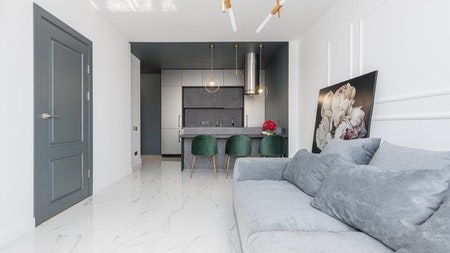According to payment automation platform PayProp’s latest analysis, residential rentals showed strong growth in the first quarter of 2022. However, rising inflation and squeezed incomes could dampen the recovery.
The quarterly PayProp Rental Index outlines trends in the South African residential rental market and is compiled from transactional data collected by PayProp.
The rental index for the first quarter of 2022 shows that rental growth rebounded in this period, with a year-on-year growth of 1.5% in January, 1.1% in February and 3% in March.
New high
“March had the strongest rental growth performance recorded since the start of the Covid-19 pandemic in March 2020,” says Johette Smuts, PayProp head of data analytics.
“The quarterly year-on-year rental growth of 1.8% in the first quarter was the highest since the start of the pandemic, and the first time this number has exceeded 1% since the third quarter of 2020.”
She says the rental index shows positive signs but warns that the country’s current high inflation rates could be pushed up further by accelerating global inflation. This has been driven by higher prices of oil and other commodities since the Russian invasion of Ukraine in February.
“Central banks worldwide are responding by increasing interest rates to curb inflation. This will almost certainly dampen economic growth and could then affect tenants’ incomes and job security. This will then place downward pressure on rental growth rates,” says Smuts.
Provinces
The 1.8% increase in residential rents between the first quarter of 2021 and the first quarter of 2022 brought the average national rent to R7 958 in the first quarter of 2022 - up from R7 819 in 2021.
Gauteng was the only province to record negative growth during the first quarter of 2022. Average rent in the province decreased by 0.1% (R11) to R8 379 in the first quarter of 2022.
Mpumalanga recorded the highest rental growth rate in the period under review at 5.3% year on year. This was the province’s second consecutive quarter at the top of the leaderboard, having notched up 3.8% in the fourth quarter of 2021. The average rent there in the first quarter of 2022 was R7 866.
In Limpopo, growth continued in the first quarter of 2022, following positive growth in each of the past six quarters - despite the pandemic. Average rent in this province increased by 4.6% year on year in this quarter - the second highest increase after Mpumalanga - with tenants paying on average R7 189 a month over the quarter.
The Western Cape remains the most expensive province for tenants after a healthy increase of 2.8%. The average rent increased from R9 142 in the first quarter of 2021 to R9 399 in the first quarter of 2022.
Rents in KwaZulu-Natal increased by 2.5% year on year for the quarter, ending at R8 381 compared to R8 177 in the first quarter of 2021. The province had the third highest average rent following the Western Cape and Northern Cape. However, competition for third place was strong, with the average rent in Gauteng just R2 lower than in KwaZulu-Natal.
National arrears
Although arrears metrics have recovered from the highs seen during the COVID-19 pandemic, Smuts says these metrics are no longer improving further at a national level.
“In most provinces, the arrears situation improved over the last quarter. However, in two of the provinces, the percentage of tenants in arrears increased along with the average amount of arrears as a percentage of monthly rent,” says Smuts.
In North West, both arrears metrics deteriorated from the fourth quarter of 2021 to the first quarter of 2022. The percentage of tenants in arrears increased from 18.2% to a concerning 25.5%. The average amount of arrears in this province increased from 90.5% of the monthly rent - already almost 8% higher than the national average - to 101.4%. This is 18.1% higher than the national average.
“It is reassuring to see that the percentage of tenants in arrears has recovered well on a national level. However, the data coming from areas like North West and Northern Cape is concerning and will need to be monitored,” says Smuts.
“Overall, the higher rental growth this quarter is reassuring, but agents still need to be vigilant. They need to carefully vet tenants and mitigate as much risk as possible as the rental market enters another period of uncertainty.
“Tenant affordability is an ongoing issue, and a slowdown in the global economy could further impact their finances,” emphasised Smuts.
Writer : Sarah-Jane Meyer




